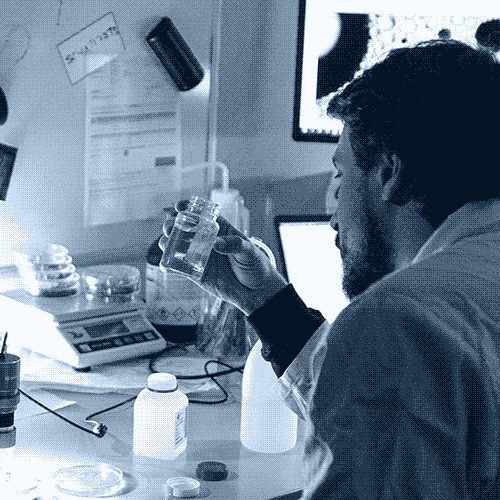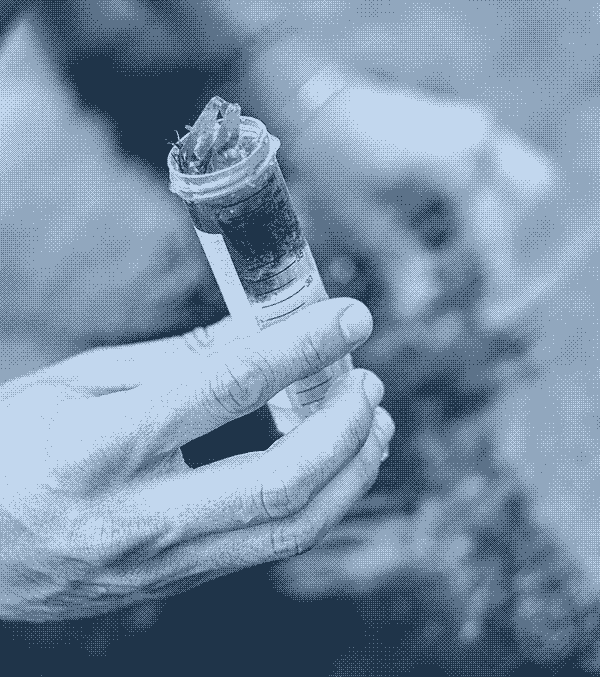scientific and legal expertise

our scientific expertise
Surfrider Foundation’s scientific expertise is based on a dedicated team of scientists who, both in the field and in the laboratory, conduct in-depth analyses to measure water quality and identify sources of water pollution.
These specialists apply rigorous protocols developed in-house to assess the risks posed by various contaminants, whether bacteriological, chemical, or related to plastic waste.
Thanks to these proven methodologies, Surfrider is able to provide an accurate assessment of the impact of pollution on marine ecosystems and propose targeted action plans to reduce threats to the ocean.
This scientific expertise is essential for supporting advocacy efforts based on reliable data and influencing environmental protection policies.

Legal action
Surfrider Foundation Europe is an association dedicated to protecting the ocean, the sea, waves and aquatic ecosystems. In court, its role is to speak out on behalf of these natural environments, which cannot defend themselves against human-induced damage. The organisation also acts on behalf of sea users: surfers, swimmers, boaters and other water sports enthusiasts who have the right to enjoy their leisure activities in a healthy environment.
As an environmental protection association, Surfrider may need to engage in dialogue with economic and institutional actors whose activities have an impact on the interests it defends.

While dialogue can alert these actors to potential malfunctions, the need for increased monitoring or better pollution management, it may not always be enough. In cases of clear bad faith, repeated violations or persistent risks, Surfrider resorts to legal action. The justice system is both a persuasive and dissuasive lever to compel all stakeholders to comply with their obligations.
Litigation serves many purposes for Surfrider:
- Taking action in cases of environmental law violations: Whenever an environmental standard is violated and may impact the ocean, aquatic environments and their users, Surfrider can take legal action.
- Holding polluters accountable: when environmental damage is identified, litigation must hold the perpetrator accountable in accordance with the polluter pays principle. This fundamental principle of environmental law means that polluters must bear the societal costs of the pollution caused by their activities.
- Preventing the implementation of plans, programmes or projects that pose a risk to aquatic ecosystems: It is possible to intervene at the planning stage of these plans, programmes or projects by participating in public consultation procedures. If, at the end of the consultation process, they still pose a risk of damage to the ocean, Surfrider can take legal action.
- Combating false good ideas and greenwashing: Certain economic and institutional players promote solutions marketed as environmentally friendly in order to sell a project or product, even though they have an impact on the environment. To combat false good ideas and greenwashing, Surfrider pays particular attention to these ‘environmentally friendly’ claims and points out misleading allegations. Legal action can range from mediation to litigation.
- Advancing environmental law through case law: When a standard is vague, different or more ambitious interpretations of the legislation can be proposed to the judge, a form of ‘judicial activism’ practised by Surfrider. This strategy enriches court decisions – known as ‘case law’ – on a given issue, clarifies the law and, potentially, influences legislators to better regulate a situation.
To carry out these missions, Surfrider Foundation Europe takes legal action mainly before judicial and administrative courts.
Judicial court proceedings
As an approved environmental protection association, Surfrider Foundation Europe can initiate and support public action, mainly by bringing civil proceedings. It can join an ongoing case in which the public prosecutor has already taken legal action, or file a complaint and thus initiate criminal proceedings. Surfrider may take action when human activities have damaged aquatic ecosystems or the health of ocean users.
Maritime transport litigation
Since 2008, Surfrider has developed a litigation strategy to bring the voice of the ocean before the courts in order to combat pollution generated by maritime transport. Indeed, some captains and shipowners have little regard for environmental standards and deliberately choose to pollute the marine environment, out of sight, in order to save money.
Thus, whenever there is an illegal discharge of pollutants (vegetable oils, hydrocarbons, contaminated ballast water) in waters under French jurisdiction, or in cases of air pollution, the association takes action to bring the case before the courts. We support public action by systematically bringing civil proceedings during hearings in order to contribute our expertise to the debates.
Our goal is to hold offenders accountable by seeking exemplary sentences that will have a real deterrent effect.
Administrative court proceedings
Surfrider Foundation Europe also challenges projects before the administrative court that could have an impact on the aquatic environment, particularly with regard to chemical, bacteriological or plastic pollution. The association also challenges plans, programmes, decrees or ministerial orders that would lead to a regression in environmental law, fail to apply it in its entirety or pose a risk to the environment.
Canéjan
In 2023, the Canéjan Town Council granted a building permit for the construction of a surf park, a surfing pool. This disproportionate and unrealistic project risks increasing pressure on water resources, which are already under strain in the area. On 31 July 2023, Surfrider Foundation Europe and SEPANSO filed an appeal with the Bordeaux Administrative Court, requesting the cancellation of the permit and the abandonment of the project.
Surfrider Foundation Europe’s legal team supports its Surfrider Coastal Defenders programme. Thanks to a network of volunteers, citizens, experts and various field actions, this programme centralises all reports of waste dumping, chemical pollution and inappropriate developments that put pressure on the ocean and coastlines.
